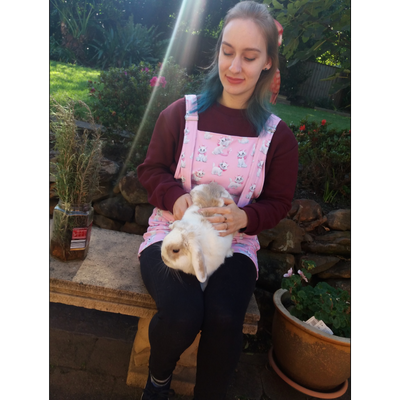
Written by Suzanna Poredos
Content note: Contains descriptions of pet death, depression and suicide support services.
I thought he would live forever, even surpassing the end of time. We were the best of buds and were never far apart. He was my hobby, my purring machine, my weighted blanket and my spiritual connection to nature all rolled in one.
But grief and loss are tricky situations, and thirteen years of compulsory schooling and children’s television shows did not prepare me for the feelings of grief and loss that death brings. For me, mourning Francis was emotionally, spiritually, and physically painful.
At first, when Francis passed away, I felt relieved because I could move on and make room for other adventures in my life. I might be a full-time residential student at university next year, I thought. I could be a live-in nanny.
Yet months flew by, and the only thing that was consistent was how messy I experienced the grief cycle to be.
It was not unusual for me to be one day feeling nostalgic about Fran, another day feeling heated anger due to his planned euthanasia, and then, in the same week, feeling really depressed – not sad, but depressed, like I had physically lost a part of myself that I would never find again.
Physically, my chest felt heavy, and when I got overly upset, my chronic nerve pain spiked. If I was emotionally stressed, it made sense that it would show up in my body. Nociception is your nervous system’s process of encoding painful events and can be dialed up or dialed down, and even delayed in Autistic individuals.
Sometimes, grieving means I feel pain deeply. For example, an over-sensitive thump in my chest is experienced as severe chest pain, reminiscent of anxiety attack symptoms.
When appropriate strategies are used, my hypersensitivity to pain can be managed, but how could I manage my distress when Fran had been the sensory comfort I use to create calm and security?
I still experience so many dreams of playing with Fran and thinking it’s real, and then on the same silly night, I have abstract dreams of Fran being dead. Some days, I deny his existence, and others I am utterly convinced he will bounce from the bushes towards me or I hear him stomping his feet demanding attention.
I hope, one day, the unique and emotionally taxing grief period of Fran’s death will end. I have heard that grief never really ends, you just learn to live with it.
I think that I’ll forever be stuck in a loop – like in a teacup ride that never stops and just keeps spinning my body around, as well as my tiresome, overactive, hyper-imaginative mind.
Seeking support has backfired so many times, so why should I try again? For example, I have had a social worker tell me, “Oh, that’s life” when I told her a life problem I had. In other scenarios, I have had phone counsellors be half-present and seemingly not care about my situation.
Fortunately, in the midst of being indecisive due to anxiety, depression, and emotional overwhelm, I have my good moments and sometimes I am so incredibly headstrong that I know what to do and trust my own intuition. I’ve looked outside of mainstream supports and into peer groups. Whilst not grief-specific or Autism-specific, these support groups can really help a lot of the time:
• SP CARE Connect Warm Line, run by Roses in the Ocean
• GROW 12-step peer support group
• Alternatives 2 Suicide, or Alt2SU peer support groups
As well as a texting service:
• Lifeline Crisis Chat, run by Lifeline
I do not have anything positive to end on, because all I want is my fantastic, funny, furry and fun friend called Francis back in my arms where he belongs. He does not belong in the world of the dead. I say so because if there was one fact people should know about him is that he truly was the life of the party.
Suzanna Poredos is an Autistic advocate, with a lived experience of Autism, co-occurring mental healthconditions, and physical, chronic health conditions. You can follow her online blog at Always Angelic Aspie Alice.


The Reframing Autism team would like to acknowledge the Traditional Owners of the lands on which we have the privilege to learn, work, and grow. Whilst we gather on many different parts of this Country, the RA team walk on the land of the Awabakal, Birpai, Whadjak, and Wiradjuri peoples.
We are committed to honouring the rich culture of the Aboriginal and Torres Strait Islander peoples of this Country, and the diversity and learning opportunities with which they provide us. We extend our gratitude and respect to all Aboriginal and Torres Strait Islander peoples, and to all Elders past and present, for their wisdom, their resilience, and for helping this Country to heal.